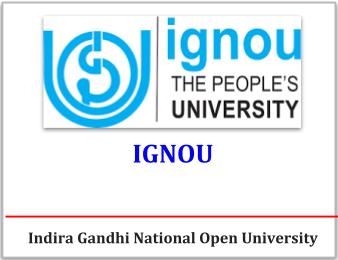NEW! The Gist (APR-24) | E-BOOKS |
IGNOU POLITICAL SCIENCE Study Notes for IAS, UPSC Exams

(Download) IGNOU POLITICAL SCIENCE Study Notes for IAS, UPSC Exams
- Ebook Name : IGNOU POLITICAL SCIENCE (B.A.)
- MEDIUM : ENGLISH
IGNOU B.A. POLITICAL SCIENCE NOTES
EPS-03 Modern Indian Political Thought
Block-1 Background of Social and Political Thoght
- Unit-1 Colonial Intervention in Society, Economy and Polity -
- Unit-2 Modern Indian Political Thought : Issues and Approaches
Block-2 Socio-Political Reform in the 19th Century India
- Unit-3 Introduction
- Unit-4 Raja Ram Mohan Roy
- Unit-5 Justice M.G. Ranade
- Unit-6 Gopal Krishna Gokhale
Block-3 Militant Nationalism
- Unit-7 Introduction -
- Unit-8 B.G. Tilak -
- Unit-9 Sri Aurobindo -
- Unit-10 Bhagat Singh
Block-4 Colonialism, Caste Order and The Tribal Societies
- Unit-11 Colonialism, Caste Order and Tribal Movements -
- Unit-12 Jyotiba Phule (1827-1890) -
- Unit-13 E. V. Ramaswami Naicker -
- Unit-14 Dr. B.R. Ambedkar -
- Unit-15 Anti-Colonial Tribal Movements In India
Block-5 Politics and Religion in Modern India The Interface
- Unit-16 Introduction -
- Unit-17 Swami Dayanand Saraswti, Swami Vivekananda and V.D. Savarkar -
- Unit-18 Sir Syed and Ahmed Khan, Mohammad Iqbal, M.A. Jinnah and Abdul Kalam Azad
Block-6 Gandhism Evolution and Character
- Unit-19 Concept of Swaraj, Satyagraha and Critique of Western Civilization -
- Unit-20 Sarvodaya and the Gandhian Alternative -
- Unit-21 Gandhian Social Reform : Bhudan Movement
Block-7 Nationalism and Social Revolution-I (Socialism)
- Unit-22 Introduction -
- Unit-23 Jawaharlal Nehru -
- Unit-24 Subhash Chandra Bose -
- Unit-25 Political Thought of JP and Narendra Dev -
- Unit-26 Rammanohar Lohia
Block-8 Nationalism and Social Revolution-II (Communists)
- Unit-27 Introduction -
- Unit-28 Communists and the Indian National Movement (1925-47) -
- Unit-29 M.N. Roy - Marxism and Radical Humanism -
- Unit-30 Contemporary Marxist Thinking (Indian) -
- Unit-31 Nationalism and Social Revolution - An Overview
EPS-07 International Relations
Block-1 Understanding International Relations
- Unit-1 Why Study International Relations? Scope and Approaches -
- Unit-2 Some Concepts : Imperialism, Nationalism, Fascism, Revolution -
- Unit-3 Some Concepts : State System, Power, National Interest, Security
Block-2 Inter-War Period
- Unit-4 World War I : Clauses, Events and Consequences -
- Unit-5 Bolshevik Revolution and its Impact
Block-3 Cold War Period
- Unit-6 World War II : Causes and Consequences (Emergence of Super Powers) -
- Unit-7 Cold War : Meaning, Patterns and Dimensions -
- Unit-8 Non-Aligned Movement
- Unit-9 Arms Race and Nuclear Threat -
- Unit-10 Disarmament and Peace Movement -
Block-4 Emergence of the Third World
- Unit-11 Colonialism & Patterns of National Liberation Movements -
- Unit-12 Features of Third World States
Block-5 End of the Cold War and its Aftermath
- Unit-13 The Gulf War -
- Unit-14 Distintegration of the Socialist Bloc -
- Unit-15 Perspectives on the Changing World Order -
Block-6 Institutions and Organisations
- Unit-16 Restructuring of the U.N. System -
- Unit-17 Globalisation of the Economy - IBRD, IMF and WTO -
- Unit-18 Regional Organisations : European Union, ASEAN, APEC, SAARC, OIC and OAU
Block-7 Issues in Development
- Unit-19 Environment and Sustainable Human Development -
- Unit-20 Human Rights and International Politics -
- Unit-21 Ethno-National Conflicts/Patterns and Dimensions -
- Unit-22 International Terrorism -
- Unit-23 Revolution in Communication Technology
EPS-09 Comparative Government and Politics
Block-1 Comparative methods and Approaches
- Unit-1 Nature, Scope and Utility of Comparative Study of Politics-
- Unit-2 Comparative Method and Strategies of Comparison -
- Unit-3 Institutional Approach -
- Unit-4 Systems Approach
Block-2 National Movement and Anti-colonial Struggles
- Unit-6 Ideology, Social Bases and Programmes of National Movements -
- Unit-7 Patterns of Anti-Colonial Struggles -
- Unit-8 Dynamics of State Formation in Colonial Era -
Block-3 Society, Economy and State
- Unit-9 Social Structures and Stratification -
- Unit-10 Class Formation -
- Unit-11 Social Bases of State Power -
- Unit-12 Development Strategies
Block-4 Classification of Political Regimes
- Unit-13 Modes of Classification of Political Regimes -
- Unit-14 Democratic and Authoritarian Regimes -
- Unit-15 Civilian and Military Regimes -
- Unit-16 Secular and Theocratic Regimes -
Block-5 Institutions and Forms of Government
- Unit-17 Organs of Government : Executive, Legislature and Judiciary
- Unit-18 Unitary and Federal Systems : Patterns and Trends in Federal Systems -
- Unit-19 Republicanism
Block-6 Patterns of Political Participation and Representation
- Unit-20 Party Systems -
- Unit-21 Pressure Groups -
- Unit-22 Electoral Process
Block-7 Social Movements
- Unit-23 Trade Union Movement -
- Unit-24 Peasants -
- Unit-25 Women's Movement -
- Unit-26 Environment -
- Unit-27 Human Rights Movements
Block-8 Globalisation and The Developing World
- Unit-28 Globalisation: Background and Features -
- Unit-29 Impact of Globalisation on Developing Societies -
- Unit-30 Globalisation and the Response of the Developing Countries
CLICK HERE TO DOWNLOAD FULL PDF
Courtesy: eGyanKosh


